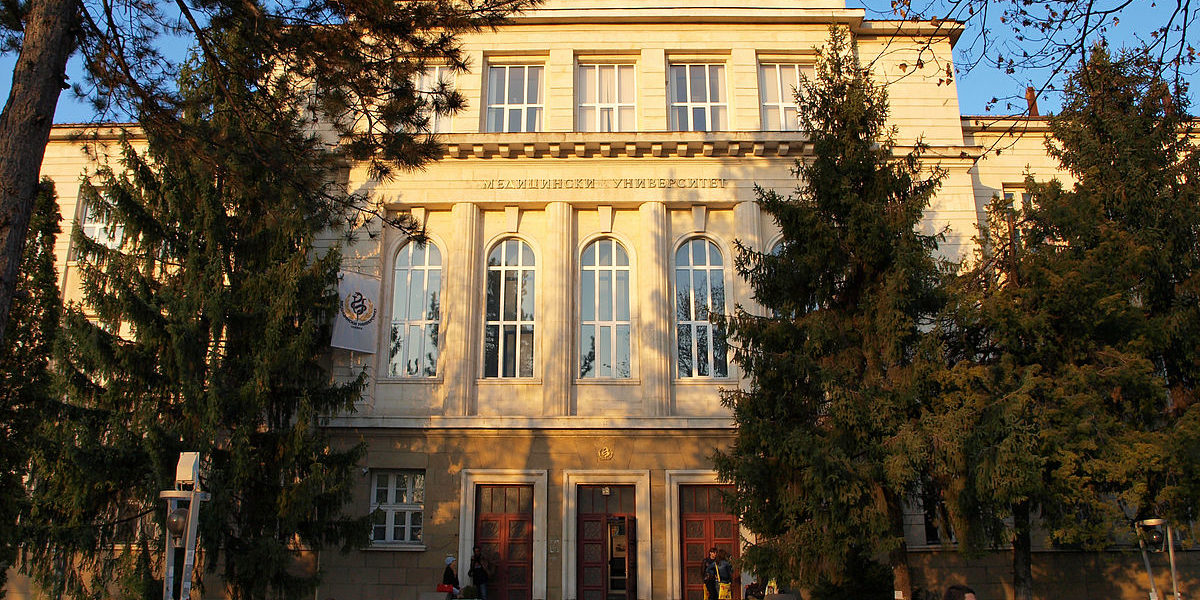Medical University Pleven is one of the five medical institutions of higher education in Bulgaria. It is the only university in Pleven and was founded in 1974 on the basis of the former regional hospital established in 1865. The university unifies a large modern preclinical base, a hospital with specialized clinics, and research sections. It has two faculties, the Faculty of Medicine covering the subjects of medicine and rehabilitation and occupational therapy, and the Faculty of Public Health covering health care, as well as a college. There are also two hostels with a total of 315 beds in two- and three-bed rooms.
The University has all theoretic, pre-clinical and clinical departments required for the higher medical education. Up to date, more than 6000 Bulgarian and foreign students from over 30 countries have graduated from the University. The current number of students is 2044. 275 of them are foreign students, including 78 of Indian nationality – the biggest community of foreign students at the university. Other international students are coming from the following countries: Macedonia, Serbia, Ukraine, Moldova, Greece, Turkey, Nigeria, Albania, Cyprus, Congo, Syria, Algeria, USA, Japan, Great Britain and France.
Pleven is the seventh most populous city in Bulgaria. Located in the northern part of the country, it is the administrative center of Pleven Province, as well as of the subordinate Pleven municipality. Internationally known for the Siege of Plevna of 1877, it is today a major economic center of the Bulgarian Northwest and Central North and the third largest city of Northern Bulgaria after Varna and Rousse. The earliest traces of human settlement in the area date from the 5th millennium BC, the Neolithic. Numerous archaeological findings, among them the Nikolaevo treasure found in Bulgaria, evidence for the rich culture of the Thracians, who inhabited the area for thousands of years.
Most of the sights of the town are related to the Russo-Turkish War. The monuments related to the war alone are about 200. Some of the more popular include the St George the Conqueror Chapel Mausoleum in honor of the many Russian and Romanian soldiers who lost their lives during the Siege of Plevna and the ossuary in Skobelev Park. Another popular attraction is Pleven Panorama, created after (and reputedly larger than) the Borodino Panorama in Russia on the occasion of the anniversary of the Siege of Plevna. Pleven is a modern city, the academic, economic, cultural and indeed medical center of Central and West-North Bulgaria, situated in the heart of the Danube plane, just two hours from the capital Sofia. Pleven boasts cultural, leisure and sporting facilities of the highest order. Pleven at night is never dull. There is a vast array of things to do and places to go, with pubs and cafes to cater for every conceivable taste. Entertainment is especially strong – music, drama, opera, and dance plus dozens of galleries and cinemas to ensure that free evenings are full evenings.


